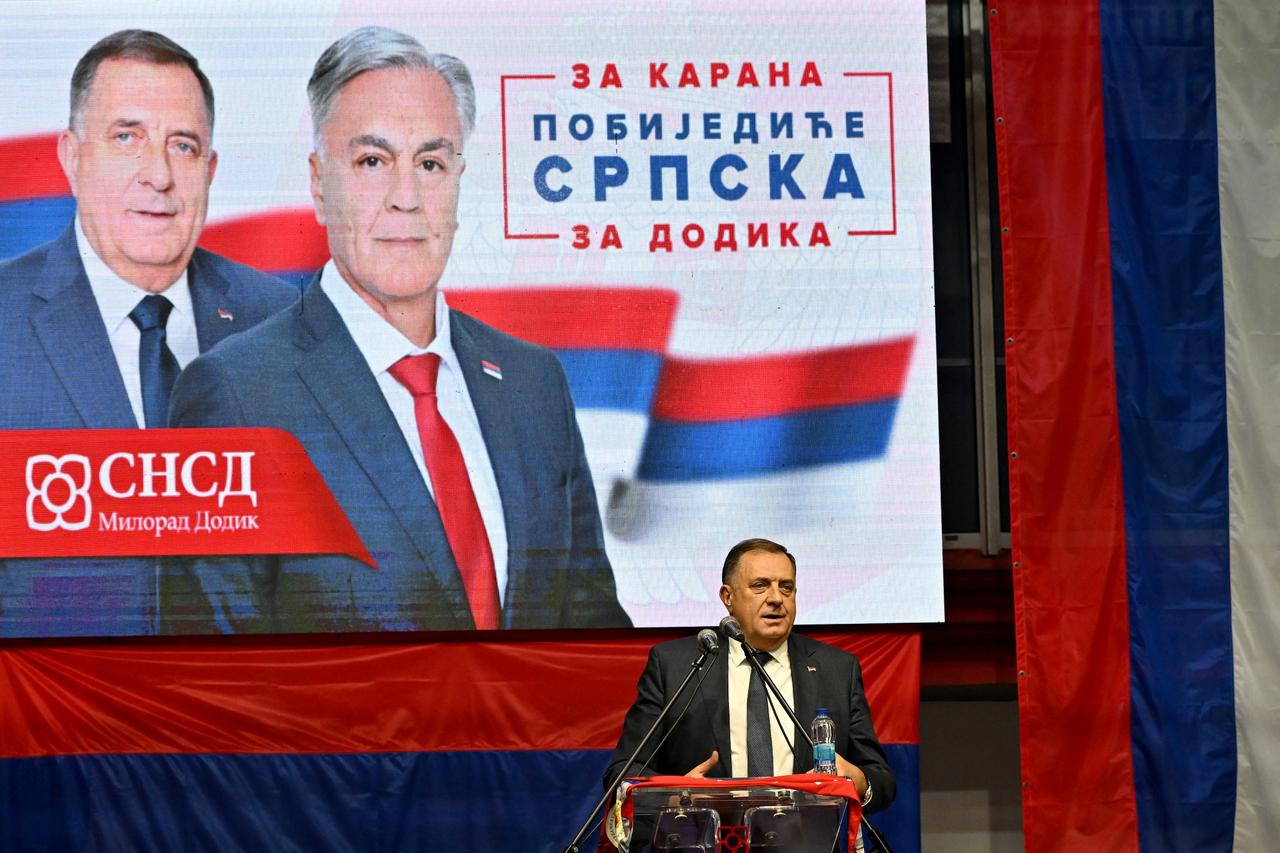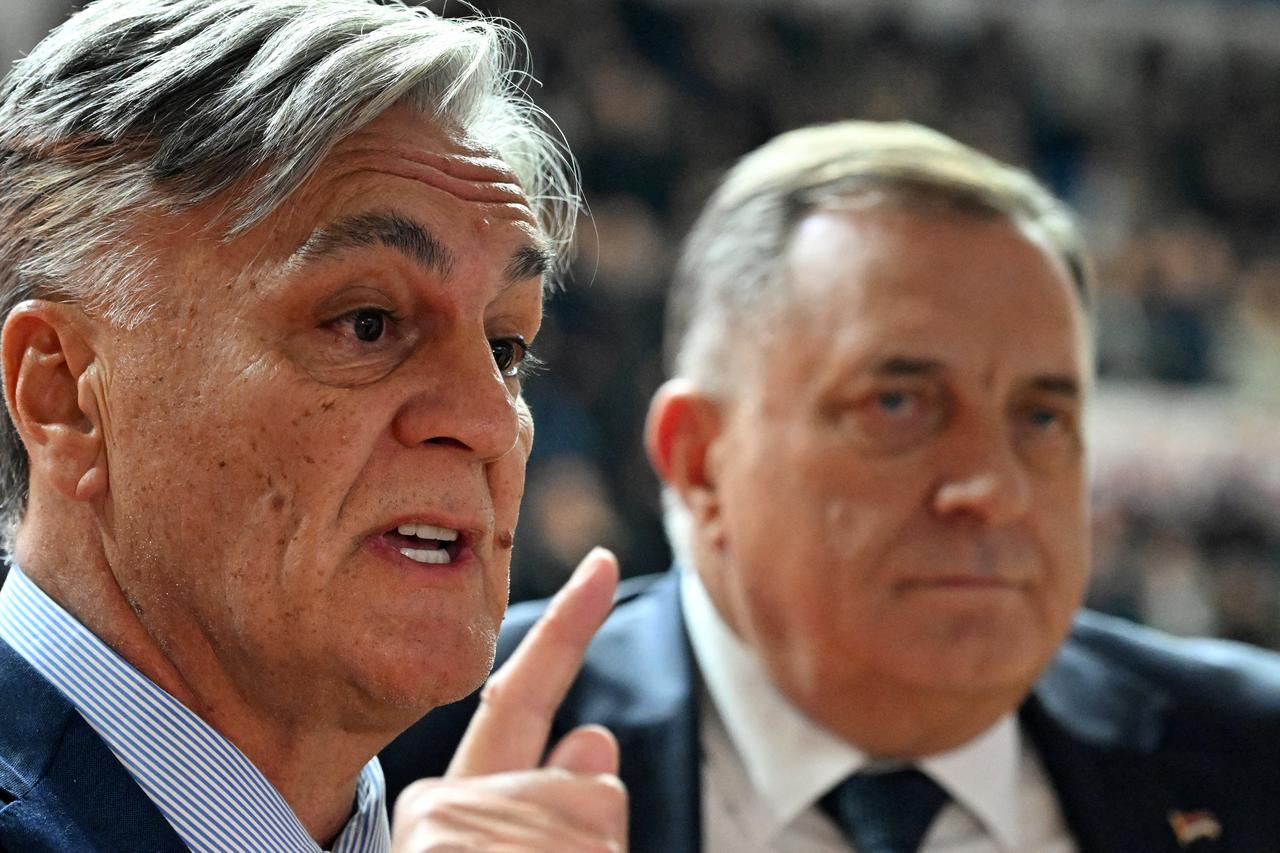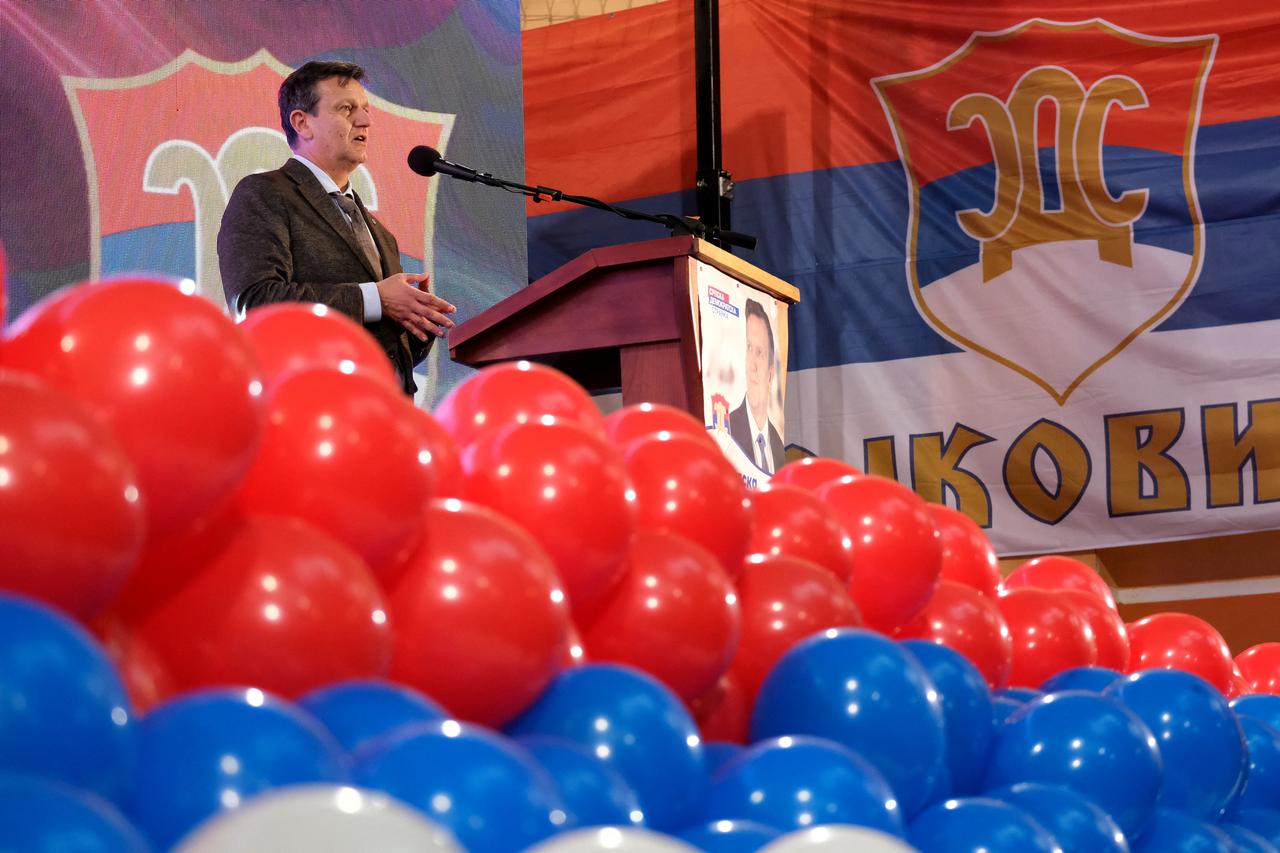
Voters in Republika Srpska (RS), the Serb-dominated entity of Bosnia and Herzegovina, will go to the polls Sunday to elect a successor to Milorad Dodik, who was removed from the presidency after being convicted of defying the international envoy overseeing the country’s fragile postwar peace.
The early election, triggered by a ruling from the Central Election Commission following Dodik’s six-year political ban, comes after a campaign clouded by ethnic slurs, nationalist rhetoric, and lingering fears of renewed separatist moves.
The election campaign focused largely on social media. Traditional rallies and billboards were minimal. Dodik, 66, launched the campaign by branding Bosniaks as “enemies” and accusing them of advancing a “destructive force” against RS.
At a rally in East Sarajevo, he declared, “This city must not allow further Islamization. Forget the fairy tale that ‘we are the same people’; we are not even of the same faith. No one lies more or worse than a Turk,” using a term historically employed by Serb nationalists to disparage Bosnian Muslims.
He added, “We must stand against the great Muslim nationalism—the revival of political Islam, which has not yet completed its mission here.”
During the 1992–1995 Bosnian War, Serb nationalists such as Ratko Mladic often used the term “Turks” to refer to Bosnian Muslims, linking them to the Ottoman Empire’s legacy and portraying them as outsiders. The label was used to justify ethnic hatred and genocide by framing Bosniaks as foreign occupiers in their own land.

About 1.2 million registered voters will cast ballots at 2,211 polling stations in RS and abroad. The two front-runners are Sinisa Karan of Dodik’s Alliance of Independent Social Democrats (SNSD) and Branko Blanusa of the Serbian Democratic Party (SDS), backed by the opposition.
Karan, 63, currently the RS Minister of Science and former Interior Minister, is widely seen as Dodik’s handpicked successor. At a campaign rally, Karan told supporters, “They wanted to get rid of one Dodik, but now they'll have two Dodiks!”
Blanusa, a 56-year-old electrical engineering professor with little political profile, has promised a clean break from Dodik’s era. “On one side, we have the wealthy members of the ruling regime. On the other hand, it's you, the people, who live very modestly,” he told a rally in East Sarajevo.
Marinko Bozovic, mayor of East Ilidza and a vocal Dodik critic, said the election offers “an opportunity for RS to take a new path,” citing corruption scandals and economic stagnation during Dodik’s rule.

Dodik was removed from office in August following his conviction for flouting decisions by the Office of the High Representative (OHR), established under the Dayton Peace Agreement to preserve Bosnia’s postwar order.
Since Christian Schmidt, a former German agriculture minister, took over as high representative in 2021, Dodik has repeatedly dismissed the institution’s legitimacy, claiming Schmidt lacked U.N. Security Council approval due to vetoes by Russia and China.
Dodik’s defiance escalated after Schmidt annulled RS legislation seeking to seize state assets and bypass decisions of Bosnia’s constitutional court. In response, the high representative criminalized non-compliance with his rulings, punishable by up to five years in prison and disqualification from office.
Dodik was indicted in August 2023, and in February was sentenced to one year in prison and barred from public office for six years. While he managed to convert the sentence to a fine on appeal, his political disqualification stood.
The Central Election Commission removed him from the presidency shortly after.
Despite that, Dodik continues to dominate the political scene. At a rally in Prijedor, northwest of Banja Luka, the administrative center of the RS, he told supporters, “You ask me what I will do after Sunday? Well, I will be president of all these ministers.”
His loyalists still refer to him as “the boss.”
After months of defiance, Dodik abruptly reversed course in late September. The RS parliament agreed to hold early elections, repealed laws that had ignited the crisis, and approved Karan’s candidacy. Ten days later, the United States lifted sanctions on Dodik and several associates, originally imposed in 2017 over his separatist threats.
Historian and diplomat Slobodan Soja suggested Dodik had “capitulated to have sanctions lifted,” while maintaining his grip on the SNSD and RS institutions. “Dodik’s behavior endangered both peace and the Dayton Agreement. That’s why he had to be stopped, but not removed,” he said.
Bosnia remains divided into two entities, Republika Srpska and the Bosniak-Croat Federation, connected by a weak central government. Since the war, Bosniaks have pushed for stronger central institutions, while Bosnian Serbs largely oppose further integration.
Tensions remain high. Dodik has repeatedly floated referendums on RS secession and warned of rejecting central authority.
At the rally last week, speaking to Agence France-Presse (AFP), retired carpenter Spiro Pljevaljcic said he supported Dodik despite his flaws. “He fears no one,” he said, recalling how his own children left the country for work.
Meanwhile, opposition supporter Gavro Mandic, 86, said Blanusa’s lack of name recognition no longer mattered. “Blanusa will win because the people are fed up and want change.”
Voting is scheduled to take place between 7:00 a.m. and 7:00 p.m. local time.